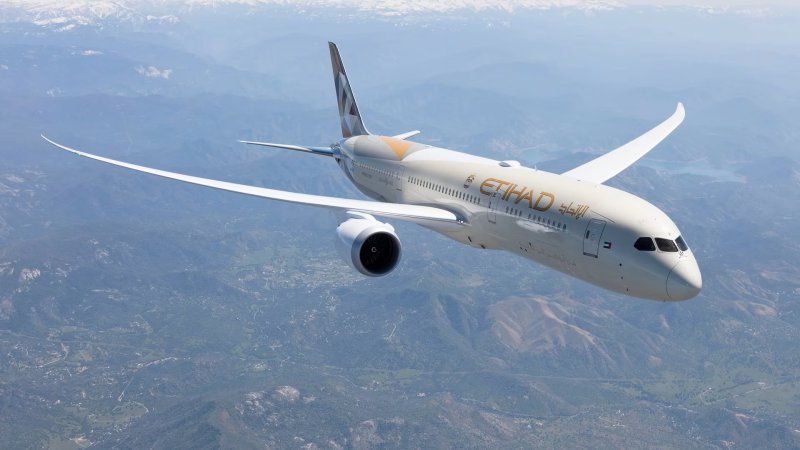Etihad Airways, the national airline of the United Arab Emirates, is expanding its aircraft fleet. The company confirmed today (May 26) an order for 28 wide-body Boeing aircraft.
Since 2023, the airline has been growing its fleet as part of a long-term strategy to double its size by 2030, in line with the evolving needs of the network and operations.
The agreement includes a mix of Boeing 787 and 777X aircraft, powered by GE engines. These planes are expected to join the fleet starting from 2028 and will support Etihad's existing plans for growth in connectivity, operational efficiency, and passenger experience.
"This commitment reflects our approach to meticulous fleet management and expansion according to demand and our long-term network plans," said Antonoaldo Neves, CEO of Etihad Airways.
"Since 2023, we have consistently added to our fleet, and this latest step ensures we continue to meet our future requirements. The addition reflects Abu Dhabi's ongoing investment in aviation as a key enabler of connectivity, tourism, and trade."
And not just in the Middle East and the Gulf, but also in the East. Earlier today, we reported that Vietnamese Vietjet ordered 20 wide-body aircraft. In their case, it wasn't Boeing but rather Airbus A330neo aircraft.
It should be noted that Etihad has been operating 8 daily flights to Israel almost continuously since the outbreak of war on October 7, 2023.
Etihad Airways continues to demonstrate outstanding performance in 2025, with record-breaking results in the first quarter of the year.
As published in Passport News, the UAE airline reported its best-ever first quarter with a net profit of 685 million dirhams (187 million dollars) – an impressive increase of 30% compared to the same period last year, maintaining strong operational profitability and a profit margin of 10%.
The total revenue of the company for the quarter was 6.6 billion dirhams (1.8 billion dollars) – a 15% increase year-on-year.
Of this, passenger revenues grew by 16% totaling 5.5 billion dirhams (1.5 billion dollars) as passenger numbers soared to 5 million – a 16% rise compared to Q1 2024, with an average load factor of 87% – particularly high for the industry.
The company also reported a 14% increase in ASK (Available Seat Kilometres), a measure of overall seat capacity, thanks to greater fleet utilization and the introduction of additional wide-body aircraft into service.
